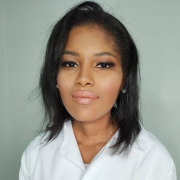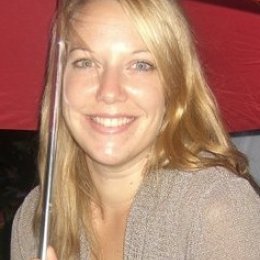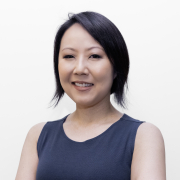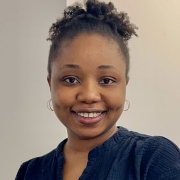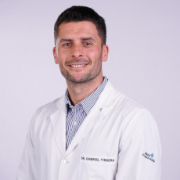Current Position:
CJ Martin – Overseas Biomedical Fellow
Previous Training/Positions:
2002-2004 Bachelor of Biomedical Science, The University of Melbourne, Australia
2005 Bachelor of Science (Honours), The University of Melbourne, Australia
2006-2009 PhD, Department of Biochemistry and Molecular Biology, The University of Melbourne, Australia
2009-2011 Postdoctoral scientist, Prof. Jenny Wilkinson-Berka, Department of Immunology, Monash University, Australia
2011-now Postdoctoral research fellow, Dr. Dominik Müller, Max-Delbrück Center for Molecular Medicine, Berlin, Germany.
Tell us a little bit about yourself
I am an Australian scientist, currently living and working in Berlin, Germany. I would probably say I have had an unusual career trajectory so far; there have been many changes and moves…but all worthwhile (I think!). I completed my PhD in a very different field to what I am working on now. I was investigating the kinetic mechanism by which proteins misfold and aggregate in to long fibrils, known as amyloid. This was in the department of Biochemistry, and involved mostly biochemical/biophysical techniques. After finishing my PhD, I wanted a new challenge and to conduct research projects which would give more insight into human disease. For this reason, I had a short postdoc in the lab of Prof. Jenny Wilkinson-Berka in the department of Immunology at Monash University in Melbourne, Australia. Here, I first learned about the renin-angiotensin system (RAS) and worked in Jenny’s lab on the contribution of the RAS to retinal diseases. I also picked up experience in her lab with cell culture and murine models of disease. This short postdoc was very rewarding as it gave me the time to pick up a lot of new techniques, discover a new research field and give me some time to think about what I wanted to really do! My next move was to Germany, to the lab of Dr. Dominik Müller, where I have been since 2011. In Dominik’s lab I am running several projects, all of which are focused on understanding the molecular mechanisms behind hypertension and target organ damage. My varied research career has been really beneficial in this setting; applying my biochemical background, the immunological and other assorted techniques I learnt in my first postdoc, has allowed me to conduct and direct a varied and broad research program. Living in Europe the past few years has also been great; the novelty of travelling only 1 hr and being in another country has not worn off!
When did you become interested in science?
I credit my father for my interest in science. Whilst he was never a scientist himself, he has the brain of a scientist and an amazing curiosity for what is happening in the world. When I was younger he used to collect beetles and other insects, and used to love to show them to my sister and I. I think these experiences at this very young age, together with his encouragement and enthusiasm, fuelled my interest in science immensely. I then first stepped into a “real” research lab during the third year of my undergraduate degree, and I was just immediately hooked and knew I wanted to do research.
Tell us a little bit about your research/research program
A primary interest of our lab and my research program is understanding the contribution of diet to disease. In particular, we are investigating how high levels of dietary salt (NaCl), as seen in our so-called western diets, causes hypertension and other diseases. We have evidence that high concentrations of salt effect the activation of the immune system, resulting in a shift in the balance between effector and regulatory cells. My research program is focused on understanding if and how different cells and cell subsets of the immune system are affected by salt, and what molecular mechanisms and signaling pathways are affected.
How did you become involved with the ISH?
As I am new to the field of hypertension I am only a newcomer to the ISH. My first encounter with the ISH was only a couple of months ago at the new investigator satellite symposium, which was held just prior to the High Blood Pressure Research Council meeting in New Orleans, USA (September 2013). This was probably one of the best meetings I have been to for young investigators. The day was set up with lots of opportunity to interact with other young investigators which was very rewarding. It was also scientifically very stimulating with very high quality talks and posters.
What do you consider to be your most significant scientific contribution (provide Pubmed PMID if possible)?
During my PhD we discovered a new mechanism by which apoplipoprotein A-I misfolds and aggregates in vitro into amyloid fibrils. This was significant as previously this protein could only be induced to misfold by proteolytic cleavage or amino acid mutations, whereas we showed that oxidation of methiones had a similar destabilising effect. This study suggested that methionine oxidation may play a crucial role in the deposition of apoA-I amyloid in atherosclerotic plaques.
Binger KJ, et al (2010) Methionine oxidation induces amyloid fibril formation by the full-length apolipoprotein A-I. PNAS, 107, 1977-82. doi:10.1073/pnas.0910136107
What upcoming conferences will you be attending?
World Diabetes Congress, Dec 2-6th, Melbourne Australia
Gordon Research Conference on Angiotensin, March 1-7th, Lucca, Italy
ISH Athens (and RAAS satellite), June 10-16th, Athens, Greece
What is your favourite manuscript from a lab other than your own (provide Pubmed PMID if possible)?
There are far too many papers that are my ‘favorites’ to choose only one from my current research field. So instead, a very random paper that I stumbled across a few years ago that I thought was very cool. The authors used carbon 14 dating and their historical knowledge of the atomic bomb testing in the 1950’s resulting in an increased level of C14 in the atmosphere during this time in order to determine if cardiomyocytes regenerate. I liked it as it is using a pretty unusual approach to answer a relatively simple question.
Bergmann O, et al (2009) Evidence for cardiomyocytes renewal in humans. Science, 324, 98-102. doi: 10.1126/science.1164680
What was your first conference?
My very first conference was in the summer before I started my PhD in Australia. It was situated at Lorne, which is a small beach-side town approximately 3 hrs outside of Melbourne, located on this stunning stretch of road known as the Great Ocean Road. The conference was on Protein Structure and Function, and had many renowned international scientists giving talks. It was quite a few years ago so I can’t remember too much about what happened scientifically…but I do recall going to the beach every day with the other PhD students and scientists I had met at the conference, so I think at this conference I first appreciated the importance and great fun that it is to network!
What is the furthest you have traveled for a conference?
As I did my PhD in Australia literally every conference I went to overseas during this time was far! Luckily, I happen to love travelling and this is another reason why I love my job. The ability to see the world, discover new cultures and interact with scientists from across the globe is the greatest perk of being a scientist, and makes all the long hours in the lab seem worthwhile.
What entity (i.e. equipment, patient population) is essential to your research?
The majority of my research uses animal or cell culture models to understand the mechanisms for disease. So all of the typical techniques associated with the handling of animals, processing of tissue samples, culturing cells, molecular analysis of protein and gene expressions are all necessary for me to conduct my research. But in terms of what I think is essential…I think it is my creativity and passion for science. The questions and ideas are always the most important, the rest are just machines.
What area of research do you wish you knew more about?
In one word, everything! I have had a varied research career to date, from a PhD on protein misfolding and biochemistry, to a postdoc on immunology and hypertension. I love learning new things, and science is progressing at such a rapid pace so I do believe it is important to stay up to date with new research fields. But one field I am particularly interested, as it is relevant to our current research, is the microbiome and how what we eat influences commensal bacteria populations, which somehow translates into diseases such as diabetes, and maybe also hypertension.
Any advice for other young scientists?
This is truly the best job in the world. But it is a hard one. So only work on what you love and have fun with what you’re doing; this alone will help you get through the long hours in the lab. And make sure you celebrate each and every achievement – for every paper accepted or fellowship/grant awarded, you have to do a resounding “cheers” to it at a pub, surrounded by your fellow scientists/lab mates and friends.
